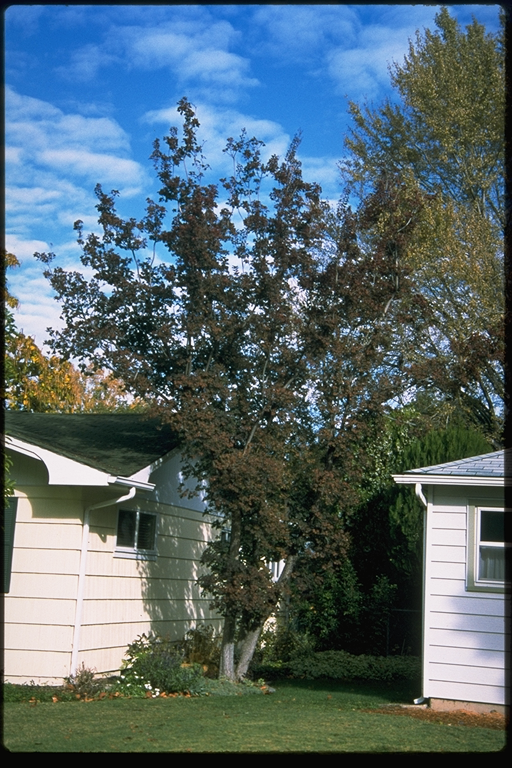smoketree (Cotinus coggygria)
First place champion purple smoketree in Grand Junction.
Species info:
Leaves: Rounded, simple leaves with smooth margins; veins are prominent and contrast with the leaf surface
Leaflets: N/A (simple leaves)
Leaf Surface: Smooth, with contrasting veins that create a textured, ornamental look
Bark: Gray and furrowed on the main trunk; begins to flake slightly with age
Flowers: Very distinctive, airy, plume-like flower clusters that resemble puffs of smoke; appear above the foliage and give the tree its name
Fruit: Fruit: Small, kidney-shaped, about ¼ inch in size
Botanical: Cotinus coggygria
Family: Anacardiaceae
Mature Height: Up to 15 feet
Canopy Spread: Up to 12 feet
Foliage Type: Deciduous
Tree Shape: Irregular and informal; often multi-stemmed but can be pruned into a small tree form
Flowers: Showy, plume-like clusters resembling clouds of smoke; color varies by cultivar (typically pink to reddish)
Fruit: Inconspicuous
Fall Color: Rich yellows, reds, and purple
Water Use: Low to moderate; drought tolerant once established
Hardiness: Zones 4–6
Soil Preference: Tolerant of clay, alkaline, and well-drained soils
Wildlife Value: Provides some habitat value; flowers attract pollinators
Insects and Diseases: No major pest or disease issues reported
Notable Traits: Exceptionally ornamental due to its “smoky” flower clusters; used as an accent plant in landscapes; highly variable cultivars with purplish foliage and colorful plumes; related American species (Cotinus obovatus) is larger (up to 30 feet) and native to the southern U.S.
Planting recommendation:
Information sources:
Michael Dirr, Manual of Woody Landscape Plants (University of Georgia, 1990)


